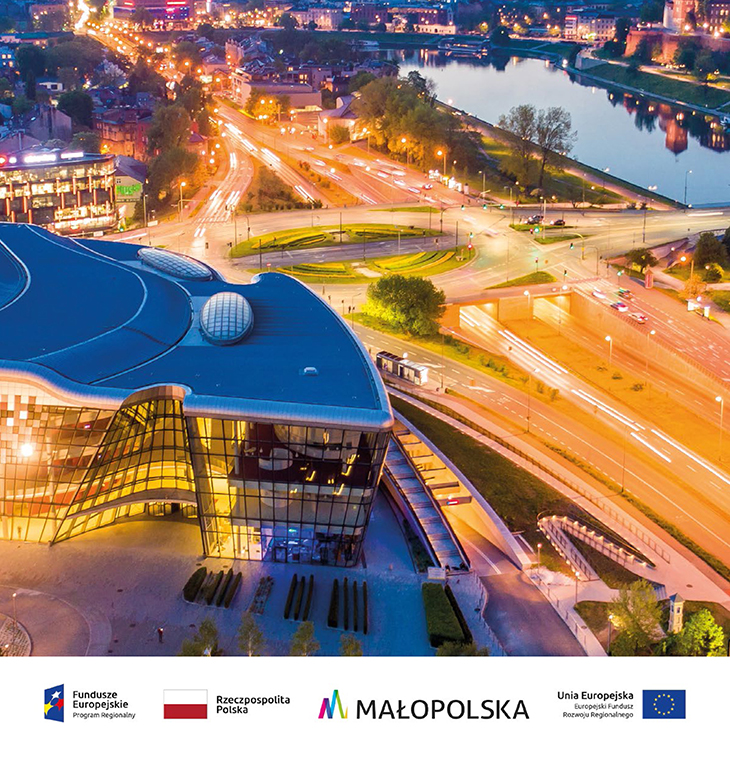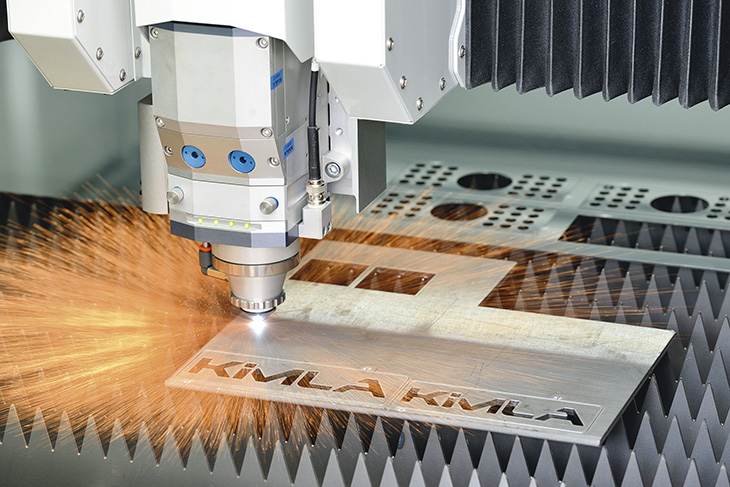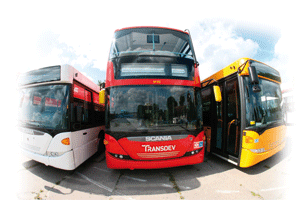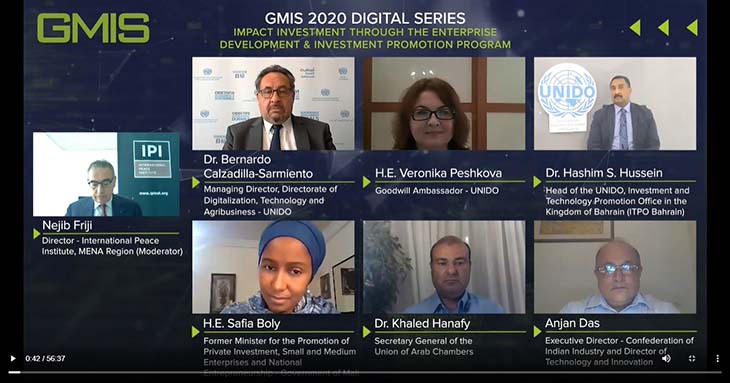- African economies have taken significant steps to upgrade their industrial and digital ecosystems, but cross-border collaboration and resource-sharing are needed to drive long-term growth
- Africa holds over 60% of global mining resources. Supporting SMEs in value-added manufacturing is crucial to facilitate industrial expansion
- Experts from Africa convened at Global Manufacturing and Industrialisation Summit’s Digital Series to discuss digital manufacturing opportunities in the continent
- The fourth edition of the Global Manufacturing and Industrialisation Summit (#GMIS2021) will be held at EXPO’s Dubai Exhibition Centre from November 22-27
Dubai, United Arab Emirates – October 19, 2021: Opportunities to boost the manufacturing sector in Africa are on the horizon, however, for the continent to witness long-term industrial transformation, both public and private sector stakeholders must join forces to develop robust policy interventions and business frameworks.
These are some of the key findings from the Global Manufacturing and Industrialisation Summit’s (#GMIS2021) Digital Series on “Building Digital Capabilities for Inclusive and Sustainable Industrialisation in Africa”.
The discussion brought together a panel of experts from across the continent and focused on how African economies must push for greater economic integration in the digital era, highlighting the need for regional countries to share their resources and expertise with each other, as well as align their policies and strategies to drive industrial growth.
Li Yong, Director General of the United Nations Industrial Development Organization (UNIDO) addressed the forum, stressing on the importance of accelerating digitalisation in Africa, as the continent builds productive sectors. “We must go further to help African countries to make their digital transition, without leaving anyone behind. We must build capabilities, enhancing digital infrastructure, improve digital skills and access to training and leverage innovative capacities. Strong partnerships with local and regional partners in business, research and government need to be built, as well as with multilateral organisations such as the African Union, Regional Economic Communities, United Nations Economic Commission for Africa and the African Development Bank.”
The panellists looked into the importance of upscaling Africa’s digital manufacturing capabilities to advance the 2030 Agenda for Sustainable Development, and investing in the educational system to build the next generation of innovators and entrepreneurs.
His Excellency Teka Gebreyesus, State Minister of Trade and Industry of Ethiopia, spoke about the importance of advancing digital industrialisation in Africa, highlighting Ethiopia’s efforts over the last 15 years to prioritise its labour intensive-manufacturing sectors. “Africa must push for greater economic integration. In the digital area, regional economic integration entails the need for countries to integrate digitalisation into their national development strategies and plans, and facilitate for the private sector to work collaboratively with the government in both policy formulation and implementation.”
To catch up with a fast-digitalising world, Ethiopia recently unveiled its ambitious digital transformation strategy – Digital Ethiopia 2025 – to transform its national economy over the next five years through four sector-driven pathways, including agriculture, manufacturing, IT-enabled services and tourism.
According to Anna Ekeledo, Executive Director of AfriLabs, even though Africa has witnessed immense economic growth over the past decades, digital hubs across the continent continue to be concentrated in a few countries and cities. As such, to drive long-term industrial expansion, digital innovation hubs must be decentralised and digital manufacturing should thrive outside the major cities. “Some of the most effective strategies that we have employed include capacity building and the availability of resources for individuals who are passionate about supporting young innovators and entrepreneurs to build their ideas into concrete products, build successful ventures, develop the right digital skills, and create jobs. This is done through establishing the right policies to enable digital hubs through the provision of infrastructure. Diversified funding is important to encourage digital manufacturing to be set up.”
Garth Strachan, who is a former Member of the Minister of Science and Technology’s National Advisory Council on Innovation in South Africa, discussed the accessibility of the digital revolution to small and medium-sized enterprises (SMEs) and cautioned against suggesting that SMEs are a silver bullet for industrial and economic development. “African countries generally are stuck in resource extraction and tech trap. Unless that trap is broken through structural transformation, the possibilities for SMEs thriving and for digital transformation to take place are substantially hindered. The digital revolution will bring greater efficiency, process innovation, and supply chain integration, but first, we need an investment-friendly policy coherence and certainty, especially for data regulation and policy management.”
He highlighted the need to support SMEs in value-added manufacturing processes in mining, as Africa is home to over 60% of global resources. “We have to move to a situation where there is cross border industrial development integration. We have to look for opportunities for leapfrogging and intra-regional collaboration in the context of environmental sustainability. Africa, in relation to hydro and renewable energy, has enormous advantages which need to be put in place. Economic infrastructure has to be in place, especially digital infrastructure, skills training and capacity building, and the public sector must provide access to data systems and processes in companies so that they integrate their operations digitally.”
According to Dr Huda Shaqiri, Assistant Professor of Computer Science at the Al Akhawayn University in Morocco, the pandemic raised awareness among SMEs and decision-makers about the importance of digital transformation. “There is big hope of moving towards a Fourth Industrial Revolution (4IR), however, we still need this to be accompanied with adapted and adopted regulations, policies, and protection. In Morocco, there is a plan to start deploying 5G in 2023, which is very important for 4IR. There is lots of work still to be done to achieve this digital transformation and 4IR.”
All panellists reinforced the importance of developing adequate policies, regulations and infrastructure, while lowering the regulatory and entry barriers for SMEs and providing them with supply and demand support.
Fifi Peters, Presenter and Producer at CNBC Africa moderated the session, concluding that stakeholders from all sectors and industries must work together to enable long-term economic changes. “It is very important that the public sector does come onboard in terms of providing the necessary policy changes or the business framework to allow for a change in mindset within the private sector. Therein lies an opportunity to boost up the current manufacturing landscape and create positive and favourable environment using digital tools to facilitate industrial transformation.”
The virtual panel discussion is the latest in a new series of sessions held by the #GMIS2021 Digital Series. The topics discussed during the session will contribute to the main themes for the fourth edition of the Global Manufacturing and Industrialisation Summit (#GMIS2021) set to take place at EXPO’s Dubai Exhibition Centre from November 22-27.
Participants can watch the #GMIS2021 Digital Series on the following link: https://youtu.be/ePcknFSwQqI and can register to attend #GMIS2021 at https://gmisummit.com/registration.


























